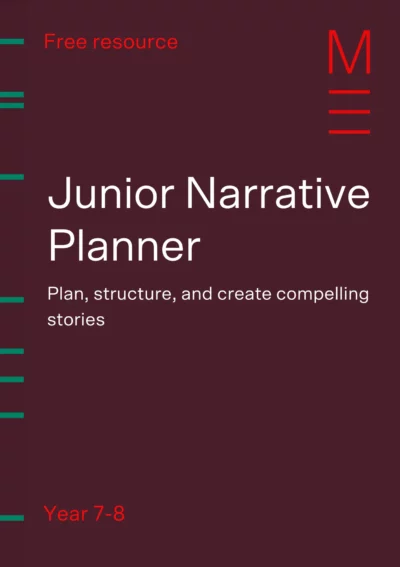Welcome to Matrix Education
To ensure we are showing you the most relevant content, please select your location below.
Select a year to see courses
Learn online or on-campus during the term or school holidays
Learn online or on-campus during the term or school holidays
Learn online or on-campus during the term or school holidays
Learn online or on-campus during the term or school holidays
Learn online or on-campus during the term or school holidays
Learn online or on-campus during the term or school holidays
Learn online or on-campus during the term or school holidays
Get HSC Trial exam ready in just a week
Get HSC exam ready in just a week
Select a year to see available courses
Science guides to help you get ahead
Science guides to help you get ahead
Struggling to find an idea for your creative tasks? Well, don't fear! We will show you the tips to find inspiration for your creatives.

Join 75,893 students who already have a head start.
"*" indicates required fields
You might also like
Related courses

Join 8000+ students each term who already have a head start on their school academic journey.
Creative writing is often considered one of the more difficult skills demanded of students in the HSC English courses.
In much the same way as any other skill, mastering the craft of creative writing requires consistent practice and engagement with texts. So, how do you find inspiration for creative writing?
If you are stuck, here are some ways to draw inspiration from yourself and the world around you.
Plan, structure, and create compelling stories with templates and engaging prompts! Fill out your details below to get this resource emailed to you. "*" indicates required fields
Get your FREE Junior Narrative Planner + Prompt

Get your FREE Junior Narrative Planner + Prompt
It is impossible to attempt to compose good pieces of creative writing without ever having understood what a good piece of writing looks like. One of the most helpful ways to get inspiration for your own texts is to turn to and appreciate the writing of reputable authors.
It goes without saying that you should act with integrity at all times, but it is a helpful exercise to read short stories and reflect upon what was engaging about them and perhaps what was not as intriguing.
Drawing upon your own reading experience, you can pick and choose aspects of literary works that you wish to emulate.
For example, it is often a good idea to start your creative with an opening that is slightly ambiguous, that incites an investment from your audience as to the particulars of the event.
You may, however, not want to emulate an experimental approach to your writing, such as stream of consciousness as you may personally find it slightly more difficult to traverse the psyche of characters.
There is a unique element of world-building and tension-building which is demanded of the short story form in comparison to say a full-length novel. In order to appreciate these nuanced differences, immerse yourself within the realm of literary works that you wish to achieve.
Try to find and read as many different short stories as you can. Note down what inspires you about them: techniques, plot devices, structure. And then try and imitate it in your own works!
Our HSC expert teachers will help you refine your writing skills and give you feedback to help you bring your creatives to the next level!
Boost your marks with the English experts!
Comprehensive resources. Proven results. Expert teachers who make English fun!
Throughout your English studies, you are prompted to consider the relationship between the content and form of authorial works and their potential links to the author’s own context.
The reason for this practice is that we often draw upon the world around us for creative inspiration and our works often reflect key moments of history.
One of the greatest sources for creative inspiration are the events in our contemporary world. So, how do we capitalise on this in our writing?
Focus on the human side of things, not the actual events themselves.
This does not necessarily mean that you should be focusing on writing about a pandemic or political tension, but the key human emotions that are at stake in these occurrences.
To do this, think about the level of paranoia, complacency but also the increased cherishing of small, previously thought mundane experiences which are now valued in light of the pandemic.
There are potential creative writing pieces which could be bred by considering the number of people displaced from their homes, separated from family members, and awaiting the opening of borders.
Aside from the pandemic, there are several other sources of inspiration in the world around us.
If you watch the news or read online newspapers, you will find a large number of potential creative writing starting points.
It is important to consider what you value most, or perhaps are most critical of, as this will mean that you are more likely to be able to craft an impassioned piece.
It is a little bit of an uncomfortable one, but you will be surprised how often you are observing people, even if only at a subconscious level.
There have been countless pieces of literature written about the speed with which we as humans form judgements of one another. As such, one of the best practices for drawing creative inspiration is to infer facts about the lives of strangers.
If you are on the train or bus or at any public place, take a look around you and choose a single person to observe for a few moments.
From their attire, the activity they are completing, the pitch and tone of their voice, and the people around them, you will be able to draw a lot of conclusions about their character.
Accurate or not, this will be a great source of inspiration for your creative piece, as you have now gathered together the facts for a potential main character.
You will notice that the more plausible your characters, the greater the stake of the emotional investment of your readers so it is often a good idea to draw your characters from real people.
It goes without saying that the most compelling and endearing pieces of writing are those which are drawn from personal experiences.
Think about how much more emotive a piece becomes when you find out that it is based on a true story.
One of the best sources of creative inspiration is your own experiences or the experiences of members of your family.
While we often find it difficult to believe, our cultural history, the stories of our parents, where we have been, who we have met along the way and what we have each individually learned all have the potential to inspire interesting creative pieces.
Every individual has a cultural heritage to be shared
If you feel as if you do not, this is the perfect opportunity to speak up and ask members of your extended family about their lives.
The vividness and attentiveness to detail with which they share their own story will be able to colour the creative writing piece you compose.
One of the greatest pieces of short writing you may ever encounter is Ernest Hemingway’s 6-word story, “For sale: baby shoes, never worn”. It tells a tragic narrative in 6 words. The exact nature of the tragedy isn’t clear but the implication of loss is immediately apparent.
Your creative should strive to do something similar. It should be coloured by your own perspective, ideas and values, but maintain a degree of ambiguity so as to become something personal for every reader who encounters it.
Written by Guest Author
We have regular contributions to our blog from our Tutor Team and high performing Matrix Students. Come back regularly for these guest posts to learn their study hacks and insights!© Matrix Education and www.matrix.edu.au, 2025. Unauthorised use and/or duplication of this material without express and written permission from this site’s author and/or owner is strictly prohibited. Excerpts and links may be used, provided that full and clear credit is given to Matrix Education and www.matrix.edu.au with appropriate and specific direction to the original content.